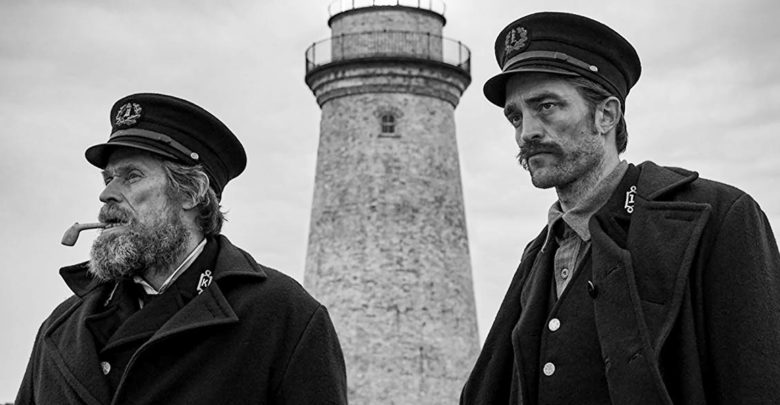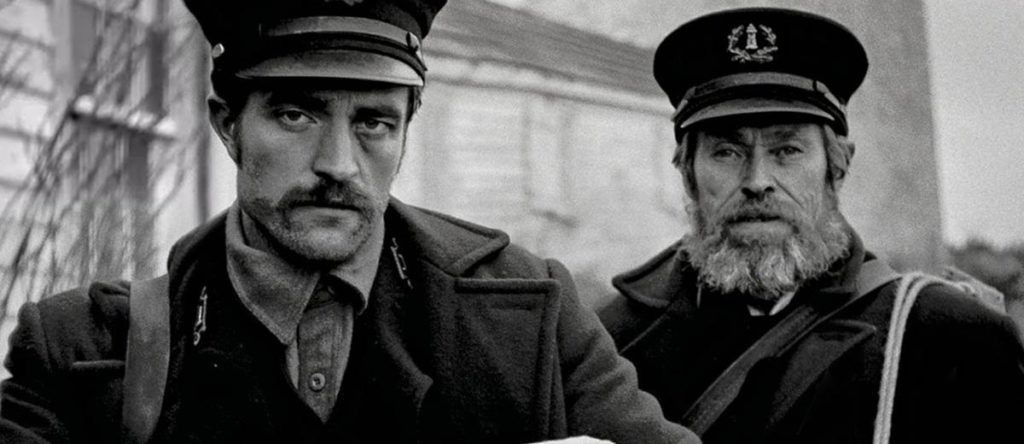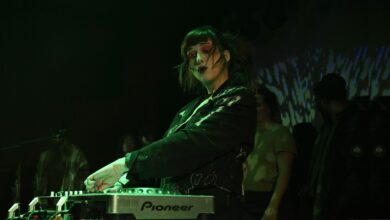Film Review: The Lighthouse
The Lighthouse will torment you with thoughts of existential dread
 A24
A24Robert Eggers’ The Lighthouse is a film-lover’s wet dream — and a magnificent nightmare.
Following his 2015 feature film debut The Witch, director Robert Eggers returns to the realm of the period fantasy horror with The Lighthouse. Once again, people talk in funny accents and wear weird clothes, and the scares come from the film slowly building up an unsettling atmosphere.
Near the end of the 19th century, Ephraim Winslow (Robert Pattinson) arrives on a desolate island to work as a lighthouse keeper for a month. It is here where he meets Thomas Wake (Willem Dafoe), a surly old man whose supervised the lighthouse for many years. The two get on each other’s nerves from the very start, but they form a close bond during their time together. However, Thomas refuses to let Ephraim into the lantern room, which causes a rift in their relationship — one that makes the pair slowly lose their sanity.
The film has a noticeably odd aesthetic, with its black and white visuals, square-like aspect ratio and highly theatrical staging. It’s not trying to capture reality in any shape or form, but, instead, the film is intent on creating a mood that will enthral audiences and provoke deep sensations and thoughts in them.
While The Lighthouse is very much a character study about two people living in isolation and the ensuing conflict, it’s also a movie about existential horror that, in itself, is horrifying to watch. It tackles questions of identity, sanity, and morality, offering no simple or evident answers. This ambiguity works well for the horror element of the film, as the shadowy unknown is just about one of the most terrifying things for the human mind.
Furthermore, the visual grittiness and murkiness of The Lighthouse only add to the existential horror. Feces, offal and foul water permeate its fabric, and the two leads are almost always covered in grime. The black-and-white visuals makes the film look even more dirty, as the identity of certain stains and marks become ambiguous.

Because the film takes place almost entirely within and around the titular lighthouse, this setting progressively gets more and more dirty and gritty as the two leads break furniture, spill alcohol on the floor, and just generally behave really sloppily. Add to that, there are various sequences that are not clearly dreams or reality, making the viewer question if they’re actually losing their mind.
Although The Lighthouse is in no way the kind of gross-out gory horror that will cause someone to lose their lunch, it is a mentally and visually deranged experience that will cause some to question their sanity. In that sense, it’s not for the faint of heart. It will stay in your mind for a long time after you leave the theatre, tormenting you with thoughts of existential dread.




